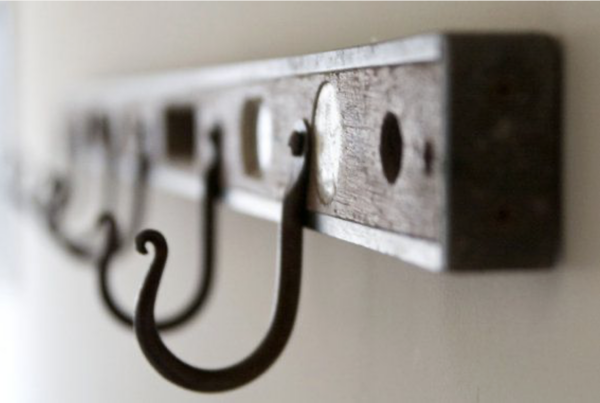Since I wrote the article “10 Rules for Brilliant Women” at Huffington Post few months ago, one rule in particular has been getting a lot of attention. Women want to work on this one:
Get A Thick Skin. If you take risks, sometimes you’ll get a standing ovation, and sometimes, people will throw tomatoes. Can you think of any leader you admire who doesn’t have enthusiastic fans and harsh critics? Get used to wins and losses, praise and pans, getting a call back and being ignored. Work on letting go of needing to be liked and universally known as a nice person.
We all dislike criticism, but for women, it is difficult in particular ways. Our culture’s focus on women’s beauty sends us the message that how we are seen by others is more important than our own lived experience. Second, we’ve been socialized to to prioritize harmony and not create conflict. Plus, studies show women are more adept than men at reading others’ emotions. We are therefore more likely than our male counterparts to perceive subtle criticism from others.
For all these reasons, the experience of criticism is uncomfortable, even shattering, for many women. So we stop doing things that involve the risk of criticism. We don’t launch the business or lead the community project. We don’t share a risky idea. We don’t do the unconventional things that would bring us fulfillment and joy.
There’s a way out of this, and it involves learning to ask yourself two questions.
Question 1: What Am I Making This Criticism Mean?
When you receive criticism that weakens your confidence, activates your inner critic, or otherwise leaves you stuck, ask yourself, “What am I making this criticism mean? How am I interpreting it?”
Without realizing it, women often automatically interpret criticism to mean they did something wrong. That’s a big leap! It involves making lots of assumptions — about yourself, and about the validity of the criticism.
Here are just a few alternative ways to interpret criticism:
- My ideas are innovative and unique, and this person doesn’t “get” them.
- This doesn’t seem to go over well with x type of person. If I want to communicate with them, looks like I’ll need to tweak my behavior.
- This person feels that their power is being threatened and is lashing out.
- This person simply has a different style or different preferences.
- This person is feeling grumpy or having a bad day.
- I need to build some skills in this area.
Those are just six options for ways to interpret criticism; I could go on and on.
I know, you don’t want to delude yourself and rationalize away negative feedback that was in fact on point. You value feedback and want to improve yourself.
The point here is to incorporate feedback wisely and with discernment. Do what you need to do in order to understand where the criticism is coming from. That might mean asking lots of follow-up questions. It also means checking in with your own intuition about the motive for and accuracy of the criticism. Sit quietly with yourself and feel that out. Trust your inner wisdom’s knowing rather than your inner critic’s worst fears. Discern what in the criticism you find valuable, what sits in you as true and helpful.
By the way, you also have permission to decide that a piece of feedback is true but not worth working on right now. Maybe you are controlling, but you’d like to just launch the project while being controlling. As women, we often think we need to fix up all our deficits and make everyone like us before we move forward, but then we never get to doing the bold things we want to do. You can have plenty of brilliant success with your weaknesses. Lord knows the Wall Street guys and Fortune 500 CEOs have done just fine with all kinds of flaws in their approaches and their judgment.
Question 2: Where’s the Match Up?
The second question to ask when criticism trips you up is, “How does this criticism touch upon a negative belief I hold about myself?”
Try this experiment: think of one positive thing you absolutely know about yourself. Maybe you know you are kind, or organized, or that you love your children dearly. Imagine that someone walked over to you and accused you of being the opposite. If you know you’re kind, imagine they said, “You are mean!” If you know you are organized, imagine they said, “Your stuff is a chaotic, disorganized mess!”
How would you respond? Perhaps you’d laugh. Perhaps you’d feel angry, but would you be wounded by what they said? No, because you know it’s not true. There’s no place for that arrow to land in you. It bounces right off the skin.
Now imagine the kind of criticism that does get to you. How does that criticism touch on what you believe about you?
The criticism that gets to us finds a “match-up” with a belief we hold about ourselves. We’re upset not because so and so said what they said, but because we’re feeling the pain of what we believe about ourselves.
My client Kristie wasn’t good at standardized tests, and was tracked with the struggling students in school. Kristie got the message that “she wasn’t smart enough.” Fifteen years later, Kristie has a successful career, but she feels like she has to hide and overcome being “not as smart” as her peers at work.
When Kristie gets any kind of negative feedback at work (for example, “These slides in the presentation don’t communicate what we want them to”), it touches that “I’m not smart enough” wound. Her work is to look at this belief of “not smart enough” to question it, to come up with a new belief, “I am smart enough,” and claim that belief for herself.
Changing beliefs can sometimes happen instantly (and it’s delightful when it does!), but more often the process doesn’t follow a quick or linear path. We look into the old belief and question it. We explore when and how it was formed.
We articulate a new self-concept and try it on. The old belief pops up again. We get stuck in it. We remember about the alternative. We choose again and again to hold the new self-concept and take action based on that new self-perception. As we see the results of doing that, as we start to see what’s true about the new belief and the positive results it brings in our lives, we start to move into naturally living in the new belief.
So that’s your work. When criticism threatens to silence your voice, cause you to step back or step down, ask yourself: What am I making this criticism mean? What other interpretations are available to me? What interpretation really resonates with my own inner wisdom? Then ask yourself, what belief that I hold about myself is this criticism touching upon, mirroring, or evoking? What do I want to replace that old belief with? What new belief would serve me better?
Love,
Tara
photo credit: LinkedIn Sales Navigator







